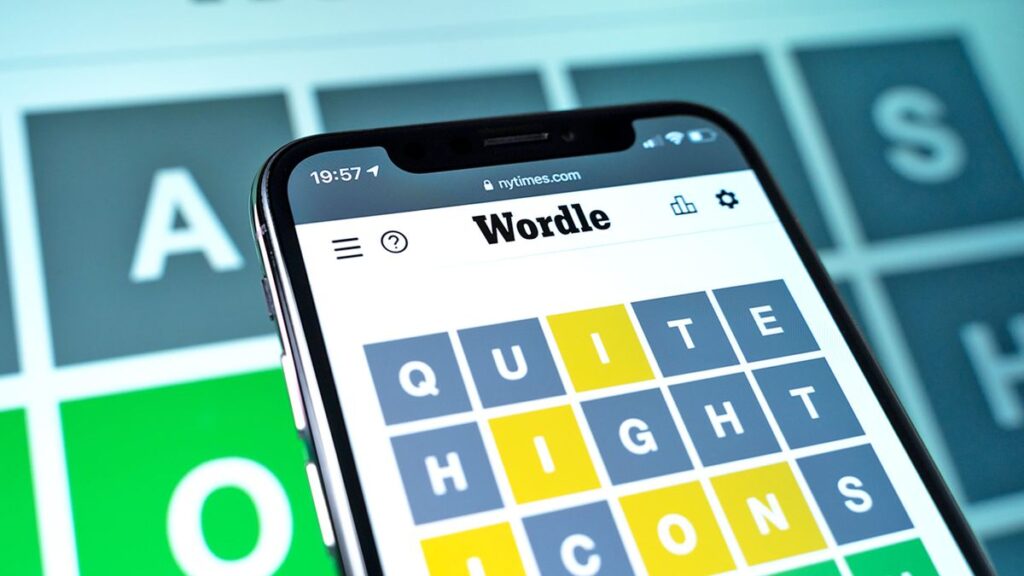
Are you captivated by the daily challenge of Wordle? This word puzzle has taken the internet by storm, offering a refreshing brain teaser for language enthusiasts. But how can you triumph consistently? Look no further, as we delve into the mechanics, strategies, and origins of your favorite linguistic puzzle.
Whether you’re a novice seeking the thrill of your first guess or a seasoned player aiming to perfect your approach, our insights will help you navigate through the complexities of Wordle, improve your gameplay, and reveal today’s much-anticipated hints and answers.
What is Wordle and how do you play?
Wordle is a simple yet captivating online game where players have six chances to guess a five-letter word. Each guess provides color-coded feedback, with green indicating the correct letter in the right position, yellow signifying the right letter in the wrong spot, and gray ruling out the letter completely.
Originating from the creative mind of Josh Wardle, this daily puzzle has now become a part of The New York Times family, engaging millions daily. The allure lies in its simplicity and the shared experience of solving the same puzzle with friends and the community worldwide.
As you engage with Wordle, you’ll discover that success hinges on strategic thinking, a robust vocabulary, and sometimes, a bit of luck. The game begins with a blank slate each day, encouraging players to apply deductive reasoning and word knowledge to unveil the hidden word.
For many, the starting word is crucial. It can lay a strong foundation for subsequent guesses or leave you grappling in the dark. Hence, selecting an opener with a mix of common vowels and consonants is often recommended for a strong kickoff.

What are today’s Wordle hints and answers?
Each day, players across the globe eagerly search for hints and answers to the Wordle puzzle. While outright spoilers can dampen the fun, strategic clues can give you a nudge in the right direction without ruining the satisfaction of solving the puzzle yourself.
For example, if we consider a previous answer like “IMBUE,” we can derive a hint: “Today’s Wordle answer is soaked in vowels, with an uncommon consonant to spice things up.” Such hints respect the game’s intrigue and support the player’s journey towards the answer.
The answers to Wordle can sometimes be common words or veer into more obscure territory. This unpredictability is part of its charm, keeping the puzzle fresh and challenging. Remember, the journey of uncovering the word is as rewarding as the destination itself.
What is the best starting word in Wordle?
The quest for the perfect starting word in Wordle is a hot topic among enthusiasts. Ideally, your initial guess should include a balanced mix of vowels and commonly used consonants. Words like “TABLET” or “CRANE” are popular choices, offering broad coverage of frequently used letters.
Some players swear by the tactic of sticking to one opener, while others enjoy the variety of changing their first move daily. The debate on the best starter is ongoing, with no one-size-fits-all answer. It largely depends on your personal strategy and success rate.
What the hell is the Omegaverse and why is it trending on TikTok?Tools like WordleBot analyze gameplay to suggest optimal starting words based on data. Leveraging such tools can provide an edge, especially for beginners looking to enhance their game.

How can I improve my Wordle strategy?
Enhancing your Wordle prowess requires a blend of keen observation and adaptability. Pay attention to the feedback from each guess to refine your subsequent choices. A strategic approach involves choosing words that either confirm the position of correct letters or help eliminate multiple possibilities.
Utilizing a solver tool or engaging with the Wordle archive can offer practice and expose you to various letter combinations and word patterns. Moreover, embracing challenges like Hard Mode can sharpen your deductive skills.
Some key tips include focusing on letter frequency, considering letter placement based on previous guesses, and avoiding repeating letters that have already been marked as incorrect. It’s also beneficial to learn word lists that enhance your vocabulary, specifically tailored for Wordle’s five-letter format.
Where did Wordle originate from?
The origins of Wordle trace back to software engineer Josh Wardle, who initially created the game for his partner’s enjoyment. Its simplicity and the shared social experience quickly led it to become a viral sensation. Wordle’s design encourages daily engagement, with a single puzzle available for all players each day, fostering a sense of community and friendly competition.
Following its meteoric rise in popularity, The New York Times acquired Wordle, integrating it into their portfolio of puzzles. The game remains free to play, preserving its accessibility and broad appeal.
Wordle’s cultural impact is evident, inspiring numerous spin-offs and variations, cementing its status as a modern classic in the realm of word games.

Is Wordle getting harder with time?
As players become more experienced and strategies evolve, some might feel that Wordle is becoming more challenging. The game’s algorithm hasn’t changed, but player perception may vary based on individual experience and the words presented.
Regular players tend to build up skill and strategy over time, which can make the game feel more difficult as they push themselves to solve puzzles in fewer attempts. However, the essence of Wordle remains the same, offering a balanced challenge for both beginners and experts alike.
What are some effective Wordle tips and tricks?
To excel at Wordle, consider the following tips and tricks:
 ‘Nothing beats a Jet2 holiday’: Why you’re hearing this everywhere
‘Nothing beats a Jet2 holiday’: Why you’re hearing this everywhere- Choose a variety of starting words over time to gain insight into different letter combinations.
- Learn to embrace both vowels and consonants equally, as neglecting either can lead to stumbles.
- Consider the positioning of letters just as much as their presence.
- Use the process of elimination to your advantage, discarding incorrect letters and positions as you go.
- Don’t shy away from rare letters if your instincts suggest their presence.
Related questions about Wordle gameplay and strategy
What is Wordle?
Wordle is a web-based word puzzle game that challenges players to guess a five-letter word within six attempts. The game provides immediate feedback on the accuracy of guesses, assisting players in deducing the correct answer through a process of elimination.
Its appeal lies in its simplicity and the communal aspect, where players worldwide are united in solving the same puzzle each day. The game has achieved significant popularity and has become a daily ritual for many.
How to play Wordle?
To play Wordle, you start by entering any five-letter word. The game will highlight each letter to indicate whether it is in the secret word and if it’s in the correct position. Use this feedback to refine your guesses and uncover the hidden word within the given attempts.

Consistency and observation are key, as the insights gained from each guess can significantly inform your next move.
What are Wordle tips and tricks?
Effective Wordle strategies involve starting with a strong word, paying attention to letter frequency, and using each guess as a stepping stone to narrow down the possibilities. Another trick is to avoid repeating greyed-out letters and to learn from patterns seen in past puzzles.
Engaging with the community, sharing strategies, and learning from others’ approaches can also enhance your gameplay. Experimentation and learning are at the heart of mastering Wordle.
What are the 25 best starting words for Wordle?
Identifying the best starting words for Wordle involves considering letter frequency and distribution. Words like “SLATE,” “CRANE,” and “SLANT” are often cited among the top choices due to their inclusion of common letters and a mix of vowels and consonants.
These starting words serve as a robust foundation for any Wordle puzzle, offering a balanced approach to uncovering the hidden word.
As we continue to explore the intricacies of Wordle, let’s take a moment to enjoy a visual representation of the game in action:

 ‘My money don’t jiggle jiggle’ jingle has surprising roots
‘My money don’t jiggle jiggle’ jingle has surprising rootsIn conclusion, Wordle is more than just a game; it’s a cultural phenomenon that unites players in a shared pursuit of linguistic prowess. By employing the tips and strategies discussed, you’re well on your way to becoming a Wordle wizard, ready to tackle today’s puzzle with confidence and skill.
